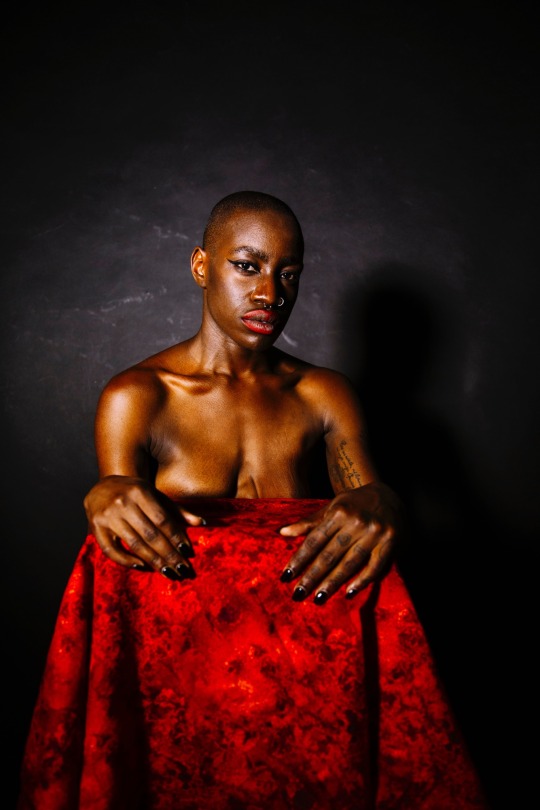#baboune
Explore tagged Tumblr posts
Text

Alabaster DePlume, Cremisan: Prologue To A Blade, (EP/Digital album), International Anthem, 2024
Honeycomb written, arranged, and mixed by Angus Fairbairn Performed by Alabaster DePlume and Sami El Enani Engineered by Angus Fairbairn
Cremisan written and arranged by Angus Fairbairn and Laith Ziad Albandak Performed by Alabaster DePlume and Laith Albandak Engineered by Radio Alhara
Gifts of Olive written, arranged, and mixed by Angus Fairbairn Performed by Alabaster DePlume Engineered by Angus Fairbairn
Honeycomb recorded in the Wonder Cabinet, Bethlehem, Palestine Cremisan recorded live in the Cremisan Valley, Bethlehem, Palestine Gifts of Olive recorded at Total Refreshment Centre, Dalston, London
If I must die from Gifts of Olive references the poet Refaat Alareer (1979-2023)
Cover image by Mikaela Burstow
Plus: Alabaster DePlume, Looking for my value: Prologue to a blade, (book), Design by Jamie Coull, Cover art by Ian Wright, Limited Edition, 2024

(Extra) Links: Radio Alhara, Edward Said National Conservatory of Music
#graphic design#art#music#music album#poetry#book#cover#book cover#alabaster deplume#ian wright#sami el enani#laith ziad albandak#radio alhara#edward said national conservatory of music#jacob baboun#mikaela burstow#jamie coull#angus fairbairn#international anthem#2020s
15 notes
·
View notes
Text





Photography by Steven Baboun of Studio Baboun
#cuntymeme#photography#avante garde#Steven Baboun#black beauty#melanin#conceptual fashion#faux fur#black alternative
6 notes
·
View notes
Text
Je n'avais jamais entendu parler d'une victime qui bombardait plusieurs zones peuplées de civils dans trois différents pays en même temps …









ronbi est une nistion

225 notes
·
View notes
Text
Dans le fond c'est la même affaire. Même sens des éthiques discutables, l'autre venait juste avec un gros kemion. Imagine débarquer avec ça aux convois. Comme le plusse gros kemion dans place. Payé par l'état en plus. Ça dois sonner pas pire en plus. Comme tu débarque avec ça pis les gens y'acceptent la paix dans le monde pis y retourne che eux. Pis y se font toute piquer le lendemain matin. Pis vite en plus. Esti qui niaisent pu trop trop. Sinon si le kemion y repasse ih beboy...
#pis y détournait l'hydro feck y'ont ramanché son compteur ish eh boboy au moins bell y s'en criss on dirais...#comme tsé eux sont comme donnant donnant comme y crosse mais si tu les crosses un peu y font pas trop trop la baboune#d'expérience du moins#pas moi qui gérait ce bill pis j'sais pas c'est qui sur ce bill mais c't'un peu comme netflix#des fois les services c'est juste une bulle dans le vide#pis comme tu prends juste ce qui passe quand ça passe
0 notes
Text




Pictures from the March for Palestine held in Santiago, Chile. On November 4th.
No clear number on how many people there were, but based on previous marches and pictures I would put the number at over 20 thousand people.
Many political figures were there, including the Communist mayor of Recoleta, who is of Palestinian ascendence.
The Palestinian Ambassador in Chile, Vera Baboun, thanked the people for showing their support and marching to push for a Free Palestine.
From the river to the sea
595 notes
·
View notes
Text
Lakou Nou – Haiti Cultural Exchange


9 notes
·
View notes
Text

La lettre « B »
Baboune:
- Faire la gueule, bouder
- Désigne aussi le bas du visage
Balado
Podcast
Baquet/Bacaisse:
Personne corpulente (homme/femme)
Bâdrer (verbe)
Inquièter, importuner, se faire du souci. S'utilise habituellement dans sa forme négative (Ne pas se bâdrer).
Balayeuse:
Aspirateur
Barniques:
Lunettes
Barouetter
Se faire bousculer, se faire déplacer rudement.
Baveux:
Arrogant, effronté
Bébelle:
Jouet, babiole
Bebitte à patate:
Coccinelle
Bécosse:
Toilette (w.c.)
Bécycle/Bécyk/bicyle/bicyk
Vélo, bicyclette. Note: un "bécyk à gaz" est une moto
Beurrée:
- Tranche de pain de mie recouvert d'une tartinade.
- Une grosse sommes d'argent.
Beurrer: (verbe)
- Salir
- Enduire, recouvrir d'une substance quelconque
Bine
- fève/haricot
- petit coup de poing habituellement donné sur l'épaule
Bizouner:
S'occuper à de menus travaux. (Ne pas confondre le verbe bizouner avec le nom bizoune qui lui signifie pénis!)
Bol:
Toilette
Bolle:
Personne très intelligente
Botcher:
Bâcler
Brassée:
Quantité de vêtements chargée et lavée dans un lave-linge
Brosse:
se saoûler, prendre une cuite
Expressions:
Swing la bacaisse dans l'fond d'la boîte à bois!
Se retrouve uniquement dans certaines chansons tranditionnelles. La bacaisse est à l'origine une bâche utilisée pour transporter le bois de chauffage à l'intérieur des maisons. L'expression peut donc s'interpréter comme une invitation à rapidement terminer ses tâches et venir faire la fête.
Boss des bécosses
Désigne quelqu'un ayant le comportement d'un petit chef autoritaire, mais sans grande envergure.
Beurrer épais
Exagérer, pousser le bouchon
Bout d'la marde
C'est le comble, incroyable
Branler dans le manche
Hésiter
Broche à foin
Mal organisé
Se tirer/prendre une bûche
S'assoir
4 notes
·
View notes
Text
OCTOBER 31, 2019
The Ethnic Cleansing of Palestinian Christians that Nobody is Talking About BY RAMZY BAROUD
Palestine’s Christian population is dwindling at an alarming rate. The world’s most ancient Christian community is moving elsewhere. And the reason for this is Israel.
Christian leaders from Palestine and South Africa sounded the alarm at a conference in Johannesburg on October 15. Their gathering was titled: “The Holy Land: A Palestinian Christian Perspective”.
One major issue that highlighted itself at the meetings is the rapidly declining number of Palestinian Christians in Palestine.
There are varied estimates on how many Palestinian Christians are still living in Palestine today, compared with the period before 1948 when the state of Israel was established atop Palestinian towns and villages. Regardless of the source of the various studies, there is near consensus that the number of Christian inhabitants of Palestine has dropped by nearly ten-fold in the last 70 years.
A population census carried out by the Palestinian Central Bureau of Statistics in 2017 concluded that there are 47,000 Palestinian Christians living in Palestine – with reference to the Occupied West Bank, East Jerusalem and the Gaza Strip. 98 percent of Palestine’s Christians live in the West Bank – concentrated mostly in the cities of Ramallah, Bethlehem and Jerusalem – while the remainder, a tiny Christian community of merely 1,100 people, lives in the besieged Gaza Strip.
The demographic crisis that had afflicted the Christian community decades ago is now brewing.
For example, 70 years ago, Bethlehem, the birthplace of Jesus Christ, was 86 percent Christian. The demographics of the city, however, have fundamentally shifted, especially after the Israeli occupation of the West Bank in June 1967, and the construction of the illegal Israeli apartheid wall, starting in 2002. Parts of the wall were meant to cut off Bethlehem from Jerusalem and to isolate the former from the rest of the West Bank.
“The Wall encircles Bethlehem by continuing south of East Jerusalem in both the east and west,” the ‘Open Bethlehem’ organization said, describing the devastating impact of the wall on the Palestinian city. “With the land isolated by the Wall, annexed for settlements, and closed under various pretexts, only 13% of the Bethlehem district is available for Palestinian use.”
Increasingly beleaguered, Palestinian Christians in Bethlehem have been driven out from their historic city in large numbers. According to the city’s mayor, Vera Baboun, as of 2016, the Christian population of Bethlehem has dropped to 12 percent, merely 11,000 people.
The most optimistic estimates place the overall number of Palestinian Christians in the whole of Occupied Palestine at less than two percent.
The correlation between the shrinking Christian population in Palestine, and the Israeli occupation and apartheid should be unmistakable, as it is obvious to Palestine’s Christian and Muslim population alike.
A study conducted by Dar al-Kalima University in the West Bank town of Beit Jala and published in December 2017, interviewed nearly 1,000 Palestinians, half of them Christian and the other half Muslim. One of the main goals of the research was to understand the reason behind the depleting Christian population in Palestine.
The study concluded that “the pressure of Israeli occupation, ongoing constraints, discriminatory policies, arbitrary arrests, confiscation of lands added to the general sense of hopelessness among Palestinian Christians,” who are finding themselves in “a despairing situation where they can no longer perceive a future for their offspring or for themselves”.
Unfounded claims that Palestinian Christians are leaving because of religious tensions between them and their Muslim brethren are, therefore, irrelevant.
Gaza is another case in point. Only 2 percent of Palestine’s Christians live in the impoverished and besieged Gaza Strip. When Israel occupied Gaza along with the rest of historic Palestine in 1967, an estimated 2,300 Christians lived in the Strip. However, merely 1,100 Christians still live in Gaza today. Years of occupation, horrific wars and an unforgiving siege can do that to a community, whose historic roots date back to two millennia.
Like Gaza’s Muslims, these Christians are cut off from the rest of the world, including the holy sites in the West Bank. Every year, Gaza’s Christians apply for permits from the Israeli military to join Easter services in Jerusalem and Bethlehem. Last April, only 200 Christians were granted permits, but on the condition that they must be 55 years of age or older and that they are not allowed to visit Jerusalem.
The Israeli rights group, Gisha, described the Israeli army decision as “a further violation of Palestinians’ fundamental rights to freedom of movement, religious freedom and family life”, and, rightly, accused Israel of attempting to “deepen the separation” between Gaza and the West Bank.
In fact, Israel aims at doing more than that. Separating Palestinian Christians from one another, and from their holy sites (as is the case for Muslims, as well), the Israeli government hopes to weaken the socio-cultural and spiritual connections that give Palestinians their collective identity.
Israel’s strategy is predicated on the idea that a combination of factors – immense economic hardships, permanent siege and apartheid, the severing of communal and spiritual bonds – will eventually drive all Christians out of their Palestinian homeland.
Israel is keen to present the ‘conflict’ in Palestine as a religious one so that it could, in turn, brand itself as a beleaguered Jewish state in the midst of a massive Muslim population in the Middle East. The continued existence of Palestinian Christians does not factor nicely into this Israeli agenda.
Sadly, however, Israel has succeeded in misrepresenting the struggle in Palestine – from that of political and human rights struggle against settler colonialism – into a religious one. Equally disturbing, Israel’s most ardent supporters in the United States and elsewhere are religious Christians.
It must be understood that Palestinian Christians are neither aliens nor bystanders in Palestine. They have been victimized equally as their Muslim brethren, and have also played a major role in defining the modern Palestinian identity, through their resistance, spirituality, deep connection to the land, artistic contributions and burgeoning scholarship.
Israel must not be allowed to ostracize the world’s most ancient Christian community from their ancestral land so that it may score a few points in its deeply disturbing drive for racial supremacy.
Equally important, our understanding of the legendary Palestinian ‘soumoud’ – steadfastness – and of solidarity cannot be complete without fully appreciating the centrality of Palestinian Christians to the modern Palestinian narrative and identity.
https://www.counterpunch.org/2019/10/31/the-ethnic-cleansing-of-palestinian-christians-that-nobody-is-talking-about/
2 notes
·
View notes
Text
Magnifique journée dans la péninsule d’Akrotiri
Il fait encore et toujours beau. La température est idéale, soit 23 Celsius. On a commencé la journée en faisant du lavage (ben oui, même en vacances il faut le faire). Pendant la phase lavage, on a exploré le coin et trouvé une auto que nous aurons pendant deux jours. On a récupéré le linge humide et placé dans la sécheuse de la buanderie pendant 30 minutes. À côté de là, on a pris un café et décidé de notre itinéraire pour la journée. Puis, retour à la chambre pour aller porter le linge propre.
Vers 11 h, on était à l’agence de location pour prendre possession de l’auto (une Nissan micra cette fois-ci). En attendant qu’on la gare pas trop loin, la dame nous a dit qu’ici, la température était de 12 degrés l’hiver et qu’elle pouvait descendre jusqu’à 4, mais seulement pendant une semaine l’hiver. Pas si mal…
Premier stop au monastère encore habité (les deux autres sont abandonnés). Wow! Quel havre de paix en haut de la montagne. Les moines savent y faire au niveau des plantes, des vignes et des oliviers. Ils vendent d’ailleurs du vin et de l’huile d’olive. Le musée attenant à l’église est rempli de richesses liturgiques.
Le deuxième arrêt nous mène au second monastère sur notre route. Sans le savoir, on s’engage dans une randonnée de trois heures sans avoir dîné au préalable et sans réserve d’eau. Nos enfants qui lisent ce blogue ne seront pas fiers de nous… la remontée a été pénible pour Robert, qui pensait avoir un coup de chaleur…
Pour nous récompenser de cet exploit imprévu, nous sommes allés nous baigner à la plage de Stavros, connue sous le nom de plage de Zorba le Grec. Ça a fait du bien!!!
On a décidé de pousser un peu plus loin et de se baigner de nouveau dans une baie où les vagues étaient plus fortes et nous faisaient chavirer. Le Soleil allait bientôt se coucher, il était 18 h 30.
On a trouvé une taverne (nom donné aux restaurants en Grèce) avec une vue spectaculaire. Le service y a été toutefois exécrable, les serveuses faisaient la baboune et le chef les engueulait devant nous. L’ambiance n’était pas à la fête. Le poisson frais grillé a été très bon (du rouget), mais le reste très ordinaire.
Au retour à l’hôtel, il nous restait encore de l’énergie pour aller prendre un verre sur le bord de l’eau. Il y avait beaucoup moins de monde qu’hier. Sur notre chemin, on a admiré une exposition de photos de visages et de mains de travailleurs grecs. Très belles photos.
Demain, on aura une petite réunion de travail pour décider de l’ordre des choses au cours du déjeuner.
2 notes
·
View notes
Text
Aujourd'hui on a réussi à se lever tôt, on a refait tout le ménage à fond, on a appelé pour changer le contrat élec, et puis comme Baboune et sa chérie devaient passer à midi on a été chercher du cidre (et puis des beignets au chocolat pour le petit déjeuner hehe)
On a pas mal parlé (avec Baboune et tous les deux) de notre projet de départ
"Non mais on va vraiment le faire"
J'ai tellement hâte
J'ai pas les mots pour ça
C'est mon rêve de petite fille et d'adulte de partir enfin
J'en reviens pas que ce soit si proche
Plus que quelques mois
Qui passent si vite
Et on sera en amoureux dans un nouvel appartement avec de nouveaux paysages et de nouveaux copains, avec du soleil
Un nouveau départ
Un nouveau départ loin d'ici et de toutes ces choses nocives qui nous retiennent prisonniers
1 note
·
View note
Text
Atletas Chilenas en Santa Fe

Desde el Lunes 24/01 al domingo 29/01 estuvieron en Santa Fe atletas de Chile, varios de ellos de selecciones nacionales, pertenecientes al Colegio Monte Tabor y Nazaret, de Santiago, en total diez atletas, nueve de ellas mujeres y un entrenador. El objetivo de este “Campus de saltos de verano” fue compartir experiencias y conocimiento entre entrenadores y atletas, entrenando a la par con los locales toda la semana y finalizando el sábado último con un Match reducido de solo saltos entre la delegación trasandina y un grupo de atletas de Santa Fe. Los atletas compitieron con carreras reducidas y los más destacados fueron en salto en alto Olivia García con 1.70 mts e Ignacio Tagle con 1.95 mts. Los atletas de Chile fueron: Antonia Jeame, Ignacio Tagle Asunción Dreyfus Amalia Baboun Francisca Cathalifaud Magdalena Vial Camila Velasco Bernardita Velasco Olivia Garcia-Huidobro Antonia Merino Entrenador a cargo del grupo fue Rodrigo Tenorio, por Santa Fe oficio de entrenador anfitrión Maximiliano Troncoso, Secretario Técnico de la FSA. Interesante iniciativa que retoma una muy buena costumbre que se practicó en los años ochenta con un nutrido intercambio entre el atletismo de Santa Fe y de Chile. El escenario deportivo fue el CARD “Pedro Candioti” de la secretaria de Deportes de la Provincia y el encuentro sirvió también para que el grupo de deportistas del hermano país disfrutara de lo mejor de Santa Fe en el verano. Read the full article
1 note
·
View note
Text
Mauvaise année aux gollums et aux babounes (voisins...) qui m:'ont pourri la vie pendant ces quelques années.

0 notes
Text





Islam in Haiti
Steven Baboun
#steven baboun#haiti#ayiti#hatian arab#hatian art#islam#islam caribbean#art#arte#caribbean#caribbean art#caribbean artist#antilles#caribbean photography#syria#photography#fotografía
70 notes
·
View notes
Photo

Steven Baboun (Haitian, b. 1996)
Tropical Addition 45, 2021
97 notes
·
View notes
Text
Quand fontla baboune mais y prance pareil dnskxkdkfkkd
0 notes
Photo






Histoires à dormir debout
New children’s book
http://www.actes-sud-junior.fr/9782330154417-l-emmanuel-lecaye-camille-de-cussac-histoires-a-dormir-debout.htm
#illustration#drawing#camille de cussac#children's books#cute#babouin#sleeping#baboun#animals#pink#swimming pool
13 notes
·
View notes